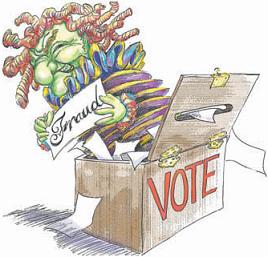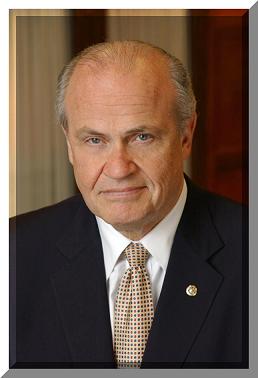|
Kick Assiest Blog
Tuesday, 12 June 2007
China
Mood:
 chatty
Topic: Yahoo Chat Stuff chatty
Topic: Yahoo Chat Stuff
Two thirds of Chinese cities' water, air polluted  BEIJING -- Nearly two-thirds of Chinese cities suffered from air pollution last year and had no centralized sewage treatment facilities, state media reported on Tuesday. BEIJING -- Nearly two-thirds of Chinese cities suffered from air pollution last year and had no centralized sewage treatment facilities, state media reported on Tuesday.
Only 37.6 percent of 585 cities surveyed had air quality "indicating a clean and healthy environment," down 7.3 percentage points from 2005, the China Daily said, citing a report by the State Environmental Protection Agency (SEPA). Thirty-nine cities, many scattered across the northern coal-rich province of Shanxi and China's northeastern rustbelt province of Liaoning, suffered "severe" air pollution, the paper said. "The report also found that the ratio of quality water in the major urban areas, either for drinking or industrial use, had dropped by 7.24 percent," the paper said. Two hundred cities had no "centralized sewage management system" and 187 had no garbage disposal plants, it said.  The government planned to have at least 70 percent of sewage and at least 60 percent of garbage treated effectively by 2010, but "the environment issue remains of serious concern and there is difficulty realizing the goal," the paper quoted the report as saying. The government planned to have at least 70 percent of sewage and at least 60 percent of garbage treated effectively by 2010, but "the environment issue remains of serious concern and there is difficulty realizing the goal," the paper quoted the report as saying.
The report comes as the capital Beijing on Tuesday was shrouded in thick smog, which local media said was exacerbated by smoke blown into the city from crop burning in neighboring provinces. On Monday night, an index measuring air pollution from Beijing's southern Daxing county read over 850 particles of "particulate matter" per square meter, which was eight times the norm, the Beijing News said. Reuters ** Two thirds of Chinese cities' water, air polluted
Related: Reuters ** Chinese demand drives global deforestation
UK Times Online ** China halts biofuels drive over food shortage fears
Posted by yaahoo_
at 1:02 AM EDT
CAIR
Mood:
 d'oh
Topic: Lib Loser Stories d'oh
Topic: Lib Loser Stories
CAIR Membership Drops 90% Since 2001 CAIR membership plummets  Membership in the Council on American-Islamic Relations (CAIR) has declined more than 90 percent since the 2001 terrorist attacks, Audrey Hudson will report in Tuesday's editions of The Washington Times. Membership in the Council on American-Islamic Relations (CAIR) has declined more than 90 percent since the 2001 terrorist attacks, Audrey Hudson will report in Tuesday's editions of The Washington Times.
According to tax documents obtained by The Times, the number of reported members spiraled down from more than 29,000 in 2000 to less than 1,700 in 2006, a loss of membership that caused the Muslim rights group's annual income from dues to drop from $732,765 in 2000, when yearly dues cost $25, to $58,750 last year, when the group charged $35. The organization instead is relying on about two dozen individual donors a year to contribute the majority of the money for CAIR's budget, which reached nearly $3 million last year.  Asked about the decline, Parvez Ahmed, CAIR board chairman, pointed to the number of individual donors to the organization. Asked about the decline, Parvez Ahmed, CAIR board chairman, pointed to the number of individual donors to the organization.
"We are proud that our grass-roots support in the American Muslim community has allowed CAIR to grow from having eight chapters and offices in 2001 to having 33 today," Mr. Ahmed said. The self-described civil liberties organization for Muslims seeks to portray "a positive image of Islam" through public relations and the media, but has instead alienated some by defending questionable accusations of discrimination.  Critics of the organization say they are not surprised membership is sagging, and that a recent decision by the Justice Department to name CAIR as "unindicted co-conspirators" in a federal case against another foundation charged with providing funds to a terrorist group could discourage new members. Critics of the organization say they are not surprised membership is sagging, and that a recent decision by the Justice Department to name CAIR as "unindicted co-conspirators" in a federal case against another foundation charged with providing funds to a terrorist group could discourage new members.
M. Zuhdi Jasser, director of the American-Islamic Forum for Democracy, says the sharp decline in membership calls into question whether the organization speaks for 7 million American Muslims, as the group has claimed. "This is the untold story in the myth that CAIR represents the American Muslim population. They only represent their membership and donors," Mr. Jasser said. DEVELOPING: More details Tuesday, online and in print editions of The Washington Times.
Readers react
Washington Times ~ Online Exclusive ** CAIR membership plummets
Posted by yaahoo_
at 12:49 AM EDT
Updated: Tuesday, 12 June 2007 1:11 AM EDT
Monday, 11 June 2007
Reid
Mood:
 d'oh
Topic: Lib Loser Stories d'oh
Topic: Lib Loser Stories
Harry "Undocumented American" Reid's approval rating, 19%  After a week of the Senate Majority libtard using the term "undocumented Americans" to describe foreigners that snuck into the country illegally -- both on his website and on the Senate floor. (He took the phrase down off the website when he caught word that Bill O'Reilly would mention it on Monday night's show.) After a week of the Senate Majority libtard using the term "undocumented Americans" to describe foreigners that snuck into the country illegally -- both on his website and on the Senate floor. (He took the phrase down off the website when he caught word that Bill O'Reilly would mention it on Monday night's show.)
Harry Reid’s Favorables Fall to 19%  Senate Majority Leader Harry Reid is now viewed favorably by 19% of American voters and unfavorably by 45%. Just 3% have a Very Favorable opinion while 22% hold a Very Unfavorable views. Senate Majority Leader Harry Reid is now viewed favorably by 19% of American voters and unfavorably by 45%. Just 3% have a Very Favorable opinion while 22% hold a Very Unfavorable views.
Reid has been very visible over the past week in the furor over immigration reform. The effort to pass a bill that was more popular in Congress than among voters may have hurt public perceptions of the Democratic leader. His ratings are down from a month ago when 26% had a favorable opinion of the Democratic Senator. Reid’s highest ratings were 30% favorable in February. Rasmussen Reports ** Harry Reid’s Favorables Fall to 19%
Posted by yaahoo_
at 11:18 PM EDT
Updated: Monday, 11 June 2007 11:23 PM EDT
NAALCP
Mood:
 d'oh
Topic: Lib Loser Stories d'oh
Topic: Lib Loser Stories
The NAALCP Hits Hard Times; Goes Pro-Life?  RUSH: The nation's largest organization representing black Americans," the NAALCP -- that would be the National Association for the Advancement of Liberal Colored People, "is cutting staff and closing..." By the way, this is not a story that you will see in the Drive-By Media. This comes from the website LifeNews.com. The NAALCP "is cutting staff and closing down some of its regional locations in the face of declining donations. The moves come on the heels of a flip-flop on abortion and some black leaders saying abortion is distracting from civil rights issues. The NAACP took an official position in favor of abortion in early 2004, a stance it quietly rescinded months later after significant backlash." They've flip-flopped on this. RUSH: The nation's largest organization representing black Americans," the NAALCP -- that would be the National Association for the Advancement of Liberal Colored People, "is cutting staff and closing..." By the way, this is not a story that you will see in the Drive-By Media. This comes from the website LifeNews.com. The NAALCP "is cutting staff and closing down some of its regional locations in the face of declining donations. The moves come on the heels of a flip-flop on abortion and some black leaders saying abortion is distracting from civil rights issues. The NAACP took an official position in favor of abortion in early 2004, a stance it quietly rescinded months later after significant backlash." They've flip-flopped on this.
"A poll conducted by Black Enterprise Magazine found that 60% of African Americans disapproved of the decision. Then, last year," the Justice Brothers, "the Revs. Al Sharpton, Jesse Jackson and Joseph Lowery kicked off a three day event in Dallas and said abortion has been used too much to block discussion of issues like voting rights and affirmative action. Now, the NAACP is cutting its staff of 119 down to 70 and with close some of the offices around the nation that it operates." So they have rescinded their official position in early 2004, being in favor of abortion. So I guess we're to assume from this that blacks are opposed abortion; is that right? Is that what we're to assume from this? Because this is not written very well, I'm not sure I get what their current position is, pro-life or pro-choice. I don't know what it is. But it doesn't seem to make any difference. I know the NAALCP is losing money, but 90% of the black vote and the presidential race goes to Democrats and we all know what their position is on abortion. So that's not going to affect the way they vote. It's just affecting the NAALCP's coffers. NAACP Downsizes After Declining Donations in Wake of Abortion Flip-Flop  Washington, DC -- The nation's largest organization representing black Americans is cutting staff and closing down some of its regional locations in the face of declining donations. The moves come on the heels of a flip-flop on abortion and some black leaders saying abortion is distracting from civil rights issues. Washington, DC -- The nation's largest organization representing black Americans is cutting staff and closing down some of its regional locations in the face of declining donations. The moves come on the heels of a flip-flop on abortion and some black leaders saying abortion is distracting from civil rights issues.
The NAACP took an official position in favor of abortion in early 2004, a stance it quietly rescinded months later after significant backlash. A poll conducted by Black Enterprise Magazine found that 60% of African Americans disapproved of the decision.  Then, last year, the Revs. Al Sharpton, Jesse Jackson and Joseph Lowery kicked off a three day event in Dallas and said abortion has been used too much to block discussion of issues like voting rights and affirmative action. Then, last year, the Revs. Al Sharpton, Jesse Jackson and Joseph Lowery kicked off a three day event in Dallas and said abortion has been used too much to block discussion of issues like voting rights and affirmative action.
Now, the NAACP is cutting its staff of 119 down to 70 and with close some of the offices around the nation that it operates. "We are right-sizing our organization to meet present circumstances," interim President and CEO Dennis Hayes told The Baltimore Sun. NAACP communications director Richard McIntyre told the newspaper that "All our bills are paid, and there's money in the bank" but said the organization has used about $10 million in reserve funds to pay bills and debts because of a downturn in donations. "It's the same type of situation where if you find yourself going to your savings more than you would like to, you're going to make changes," McIntyre said. Mychal Massie, chairman of the black conservative group Project 21, told the Cybercast News Service that the NAACP's financial woes are no surprise because it ignores the real plight of black Americans on issues such as abortion.  "[T]hey're not addressing the very real ills in the black community" such as "out-of-control abortion, which amounts to nothing more than black genocide." "[T]hey're not addressing the very real ills in the black community" such as "out-of-control abortion, which amounts to nothing more than black genocide."
In fact, abortion has adversely affected the African-American community and Dr. Alveda King, the niece of Dr. Martin Luther King, Jr., notes that abortion has disproportionately affected black Americans. While black women constitute about 13% of the childbearing population, they have over one-third of the abortions. The abortion rate of black women is three times higher than that of white women and 60% of African-American women who become pregnant will have an abortion. More than 14 million abortions have been done on black women and abortion businesses are frequently located in minority communities. "I join the voices of thousands across America who can no longer sit idly by and allow this horrible spirit of murder to cut down," King says. "If the dream of Dr. Martin Luther King, Jr., is to live, our babies must live."
Meanwhile, polls show black Americans are pro-life and supporting pro-life candidates in greater margins than before. In an August 2004 survey sponsored by Pace University and Rock the Vote, 54 percent of all Americans declared themselves pro-life while just 44 percent said they supported legal abortion. However, African-American voters took a pro-life position by a larger 59 to 42 percent margin. Life News.com ~ Steven Ertelt ** NAACP Downsizes After Declining Donations in Wake of Abortion Flip-Flop
Posted by yaahoo_
at 7:14 PM EDT
Updated: Monday, 11 June 2007 7:19 PM EDT
Fraud
Mood:
 loud
Topic: Yahoo Chat Stuff loud
Topic: Yahoo Chat Stuff
Election Fraud: 330 Noncitizens Voted in Bexar County TX... Just doing the voting Americans won't do! By Michelle Malkin -- Via the Dallas Morning News (hat tip - reader Jeff J.):  Noncitizens likely voted in Bexar County Noncitizens likely voted in Bexar County
DA investigating as many as 330 people in election fraud case  Dozens of non-U.S. citizens may have voted in Bexar County elections, a county elections official reported, prompting an investigation by federal and local authorities. Dozens of non-U.S. citizens may have voted in Bexar County elections, a county elections official reported, prompting an investigation by federal and local authorities.
The names of 330 noncitizens on the voter rolls were reported by Bexar County Elections Administrator Jacque Callanen. Those named had received jury duty summonses but told the court they weren't eligible to serve because they were not U.S. citizens. Immigration and Customs Enforcement, part of the Department of Homeland Security, requested Mr. Callanen's report in an administrative subpoena. And the Bexar County district attorney's office is investigating whether as many as 41 of those noncitizens voted in more than a dozen local, state and federal elections since 2001. "You bet your bottom dollar we'll prosecute ... if we find people voted illegally in violation of the state election code," Bexar County District Attorney Susan Reed said. The 330 names have since been removed from voter rolls, Mr. Callanen said.  Investigators with customs enforcement are trying to locate and interview those named. Investigators with customs enforcement are trying to locate and interview those named.
The agency also is looking into false citizenship claims, said spokeswoman Nina Pruneda. Federal authorities also requested similar voter data from election officials in Harris, Tarrant and El Paso counties, Mr. Callanen said. But Ms. Pruneda declined to discuss the scope of the federal inquiry. Imagine how many more will cast ballots if the Bush-Kennedy shamnesty gets through. But hey, what's the problem? One man's "non-U.S. citizens" with fraudulent voting records and false citizenship claims are another man's "undocumented Americans," after all. Right, Sen. Reid? Michelle Malkin.com ** Just doing the voting Americans won't do!
Posted by yaahoo_
at 8:37 AM EDT
Updated: Monday, 11 June 2007 8:45 AM EDT
Boom
Mood:
 cheeky
Now Playing: BUSH'S FAULT
Topic: News cheeky
Now Playing: BUSH'S FAULT
Topic: News
 BOOM: States Report Cash Surplus... BOOM: States Report Cash Surplus... States Finding Fiscal Surprise: A Cash Surplus 
State lawmakers across the country, their coffers unexpectedly full of cash, have been handing out tax cuts, spending money on fixing roads, schools and public buildings, and socking something away for less fruitful years. Budget surpluses have largely stemmed from higher than expected tax collections — corporate tax revenues alone were 11 percent higher than budget estimates — and booming local economies. There has also been some relief in Medicaid spending, which fell from an 11 percent annual growth rate to something closer to 7 percent in the past few years. More than 40 states have found themselves with more money than they planned as they wound down their regular sessions. Governors in 23 of those states proposed tax cuts, and a majority of states with surpluses chose to shore up their roads, schools and rainy day funds. For example, lawmakers in Utah agreed to a $1 billion bond act to fix state roads and add lane miles, while in Idaho state spending on education outpaced that on Medicaid for the first time in 20 years. The extra cash over the last two budget sessions (many states work on a two-year cycle) is at the highest level since 2000, state budget experts say. States, burned by several years of shortfalls, kept their estimates of total revenues on the conservative side and are now reaping plenty. “Because states cut back so in the early part of the decade,” said Ray Scheppach, the executive director of the National Governors Association, “they put off maintenance, they put off building, things like that, so they are beginning to do some one-time spending.” Like teenagers who went without allowance, legislators have been working off pent-up demand. Many states are largely using surpluses to tackle long-term and costly problems like the uninsured and crumbling infrastructures. In large part, experts say, states are looking to give relief to taxpayers who have long been howling about property taxes, and to pay back areas that states have been robbing to balance previous budgets. “When states return to a positive balance, they will not normally go back to tax cutting right away,” said Arturo Perez, a fiscal analyst with the National Conference of State Legislatures, which has tracked the spending of states and tabulated the list of those with surpluses. “But there has been across the country a growing interest in addressing the issue of property tax levels and burdens.” Education — especially state universities — has also been long waiting, Mr. Perez said. “In times of difficulty, states tend to look for areas they can make adjustments to, and higher education represents the largest area of discretionary expenditures,” he said. In the New York area, where legislators are still negotiating budgets, the song is much the same. Connecticut, for example, is looking at a $1 billion surplus for its 2007 fiscal year, and New York and New Jersey are mulling billion-dollar property tax breaks and large increases to the public education budget. In about half a dozen state governments, the transfer of power to Democrats after last November’s elections made for a legislative season with more-liberal policymaking, sometimes hand in hand with spending initiatives. Laws extending certain rights to same-sex couples were particularly popular. Most state legislatures have been finishing their business in the past few weeks and months, with about a dozen still in session. Laws vary by state, with some lawmakers working in the state capitals only part-time for a few months every two years, and others employed as full-time legislators who convene every January.  Over all in the 2007 fiscal year, which ends at the end of this month, state spending in the 50 states totaled $616 billion, an increase of about 8.6 percent over 2006, according to a report by the National Governors Association and National Association of State Budget Officers. The average annual growth rate over the past three decades has been 6.5 percent, the report said. Over all in the 2007 fiscal year, which ends at the end of this month, state spending in the 50 states totaled $616 billion, an increase of about 8.6 percent over 2006, according to a report by the National Governors Association and National Association of State Budget Officers. The average annual growth rate over the past three decades has been 6.5 percent, the report said.
Only a handful of states have had to cut budgets, led by Michigan, which has suffered six straight years of job losses. Texas issued the largest property tax cut in its history — $14.2 billion for the biennium, representing roughly a one-third decrease for average home owners.  North Dakota gave homeowners $118.6 million worth of property tax relief, and Utah offered residents a $220 million tax cut package. In Arkansas, the Legislature reduced the state sales tax on groceries from 6 percent to 3 percent and rendered about 81,000 low-incomes families exempt from paying personal income taxes. North Dakota gave homeowners $118.6 million worth of property tax relief, and Utah offered residents a $220 million tax cut package. In Arkansas, the Legislature reduced the state sales tax on groceries from 6 percent to 3 percent and rendered about 81,000 low-incomes families exempt from paying personal income taxes.
Nebraska gave residents $420 million in a host of tax cuts, the largest in that state’s history. “Property tax relief was high on the list of the demands from the citizens,” Mike Flood, speaker of the Legislature, said. On the spending side, money was distributed across the board, but transportation and education saw some of the biggest boosts. Arkansas, for instance, earmarked $80 million from its general fund to repair or expand roads and highways, a result, in some part, of that state’s estimated $313 million in extra net general revenues in fiscal year 2007. In Wyoming, where the $6.9 billion biennium budget for 2007 and 2008 is 23 percent higher than the prior two-year budget, the Legislature sprung for $100 million to improve the state’s highways.  Utah lawmakers agreed to pay for the $1 billion bond act for roads with debt service paid out of the state’s general fund. “We have experienced significant growth here,” said John Massey, Utah’s legislative fiscal analyst. “So it is badly needed.” Utah lawmakers agreed to pay for the $1 billion bond act for roads with debt service paid out of the state’s general fund. “We have experienced significant growth here,” said John Massey, Utah’s legislative fiscal analyst. “So it is badly needed.”
Education has been another legislative priority. Idaho lawmakers increased spending for lower education 5.9 percent and for higher education by 8.4 percent, thanks in part to the $200 million surplus in this year’s budget. “Higher education has a more flexible budget, and basically we have kind of used them as our checkbook,” said Maxine T. Bell, the chairwoman of the state’s appropriations committee. “And you can’t keep doing that. The infrastructure gets behind and they raise fees on the students. So this year we were able to give them a pretty good chunk of money, and it was just simply because the economy was in good shape.” This week, the Louisiana Legislature, which is still in session, set aside a record amount for higher education, said John Carpenter, the director of that state’s joint legislative committee on the budget.  Many states have also taken on the expensive and seemingly intractable problem of covering uninsured residents, particularly children. According to a report from the National Governors Association, two-thirds of the nation’s governors have plans to expand health care in their 2008 fiscal years, largely through expansions of government-financed health insurance programs and employer mandates. Many states have also taken on the expensive and seemingly intractable problem of covering uninsured residents, particularly children. According to a report from the National Governors Association, two-thirds of the nation’s governors have plans to expand health care in their 2008 fiscal years, largely through expansions of government-financed health insurance programs and employer mandates.
For example, Wisconsin is contemplating legislation to cover all of its children by 2010 by expanding programs to those living with family incomes up to 300 percent of the federal poverty level by January 2009 and discounted insurance to those with higher incomes. In Oregon, where legislators are furiously working to wind down the session, lawmakers are deliberating a $60 million increase to a program insuring children via a 84.5 cents-per-pack cigarette tax increase.  “The biggest agenda piece right now is to insure all kids in Oregon,” said Russ Kelley, the spokesman for Oregon’s House speaker, Jeff Merkley. “The biggest agenda piece right now is to insure all kids in Oregon,” said Russ Kelley, the spokesman for Oregon’s House speaker, Jeff Merkley.
The governors association estimated that the national budget for health care expansions in 2008 would be $18.4 billion, including federal allotments. Lawmakers in many states have pushed for rainy day funds: Georgia, Colorado, Nebraska and Oklahoma are among them. “We went into the session with a $400 million rainy day fund, which may have been our largest ever,” said Mike Flood, speaker of the Nebraska Legislature. “Times have been good to Nebraska.”  In Oregon, where Democrats gained control of all of state government for the first time in 16 years, lawmakers passed legislation recognizing domestic partnerships, told insurance companies they had to pay for female as well as male contraception and are in the middle of passing bills restricting predatory lending. In Oregon, where Democrats gained control of all of state government for the first time in 16 years, lawmakers passed legislation recognizing domestic partnerships, told insurance companies they had to pay for female as well as male contraception and are in the middle of passing bills restricting predatory lending.
“It has been 16 years since we have had a major say in things,” Mr. Kelley said, “so we have had some things pile up.” In Colorado, where Democrats gained control of both chambers and the governor’s office for the first time in 45 years, bills were passed to prohibit workplace discrimination based on sexual orientation, ban abstinence-only education and allow gay couples to adopt each other’s children. In Iowa, where Democrats controlled the governor’s office and both houses for the first time in 42 years, the state’s civil rights laws were extended to gays. In Wyoming, at least one law was passed that cost no money, and required no partisanship. Pascopyrum smithii, or western wheatgrass, has now become the state’s official grass. Catherine Billey contributed reporting.
NY Times ~ Jennifer Steinhauer ** States Finding Fiscal Surprise: A Cash Surplus
Related: Bush's Fault ~ Federal Deficit Sharply Lower
Posted by yaahoo_
at 2:57 AM EDT
Updated: Wednesday, 13 June 2007 10:13 AM EDT
Sunday, 10 June 2007
Deja Vu
Mood:
 sharp
Topic: Odd Stuff sharp
Topic: Odd Stuff
 I just know I've read this somewhere before... Origin of Deja Vu Pinpointed By Dave Mosher -- LiveScience Staff Writer, LiveScience.com The brain cranks out memories near its center, in a looped wishbone of tissue called the hippocampus. But a new study suggests only a small chunk of it, called the dentate gyrus, is responsible for “episodic” memories—information that allows us to tell similar places and situations apart. The finding helps explain where déjà vu originates in the brain, and why it happens more frequently with increasing age and with brain-disease patients, said MIT neuroscientist Susumu Tonegawa. The study is detailed today in the online version of the journal Science.
Like a computer logging its programs’ activities, the dentate gyrus notes a situation’s pattern—it’s visual, audio, smell, time and other cues for the body’s future reference. So what happens when its abilities are jammed?
 When Tonegawa and his team bred mice without a fully-functional dentate gyrus, the rodents struggled to tell the difference between two similar but different situations. When Tonegawa and his team bred mice without a fully-functional dentate gyrus, the rodents struggled to tell the difference between two similar but different situations.
“These animals normally have a distinct ability to distinguish between situations,” Tonegawa said, like humans. “But without the dentate gyrus they were very mixed up.”
Déjà vu is a memory problem, Tonegawa explained, occurring when our brains struggle to tell the difference between two extremely similar situations. As people age, Tonegawa said déjà-vu-like confusion happens more often—and it also happens in people suffering from brain diseases like Alzheimer’s. “It’s not surprising,” he said, “when you consider the fact that there’s a loss of or damage to cells in the dentate gyrus.”
 As an aging neuroscientist, Tonegawa admitted it’s a typical phenomenon with him. “I do a lot of traveling so I show up in brand new airports, and my brain tells me it’s been here before,” he said. “But the rest of my brain knows better.” As an aging neuroscientist, Tonegawa admitted it’s a typical phenomenon with him. “I do a lot of traveling so I show up in brand new airports, and my brain tells me it’s been here before,” he said. “But the rest of my brain knows better.” Visit LiveScience.com for more daily news, views and scientific inquiry with an original, provocative point of view. LiveScience reports amazing, real world breakthroughs, made simple and stimulating for people on the go. Check out our collection of Science, Animal and Dinosaur Pictures, Science Videos, Hot Topics, Trivia, Top 10s, Voting, Amazing Images, Reader Favorites, and more. Get cool gadgets at the new LiveScience Store, sign up for our free daily email newsletter and check out our RSS feeds today!
Yahoo News ~ Live Science.com - Dave Mosher ** Origin of Deja Vu Pinpointed
Posted by yaahoo_
at 3:17 AM EDT
Updated: Sunday, 10 June 2007 3:21 AM EDT
Gin
Mood:
 spacey
Now Playing: LIBTARD EDUCATION ALERT
Topic: Lib Loser Stories spacey
Now Playing: LIBTARD EDUCATION ALERT
Topic: Lib Loser Stories
 How Dumb Can A Teacher Be?  School Defends Serving 6th-Graders Gin School Defends Serving 6th-Graders Gin
 AKRON, Ohio -- An Ohio charter school that emphasizes African history and culture served gin to sixth graders at a graduation ceremony and state education officials said they plan to investigate. AKRON, Ohio -- An Ohio charter school that emphasizes African history and culture served gin to sixth graders at a graduation ceremony and state education officials said they plan to investigate.
Four students were given a teaspoon of gin mixed with water in a ceremony modeled on a Ghanian rite of passage event, said Kwa David Whitaker, a Phoenix Village Academy official. The ritual was intended to teach truthfulness, said Whitaker, who oversaw the Tuesday ceremony. The students were blindfolded, giving them the uncertain feeling that goes with moving from one stage of life to another, he said. Each student was given a teaspoon of water and a teaspoon of the gin-water mix, and then asked to identify which contained water.  The students recognized that the gin wasn't water and spit it out before swallowing, Whitaker said. The point is to teach the children to be honest, he said. The students recognized that the gin wasn't water and spit it out before swallowing, Whitaker said. The point is to teach the children to be honest, he said.
The Ohio Department of Education plans to investigate and will be contacting school officials, agency spokeswoman Karla Carruthers said. Charter schools are privately run schools that receive public money. Parents at the graduation ceremony saw the gin bottle and knew students would be served a small amount of alcohol, Whitaker said. Whitaker said alcohol would not be used in future ceremonies. "We could have put pepper in the water," he said. "If someone is concerned about it, obviously it is not the best thing to do."  Candie Nelson, whose 13-year-old son participated in the ritual, said she had no objection. Candie Nelson, whose 13-year-old son participated in the ritual, said she had no objection.
"It's part of an ancestral African tradition," she said. "It's not like you're drinking 100 proof alcohol here." The year-old Phoenix Village Academy has about 40 students in kindergarten through sixth grade and is operated by the Cleveland-based Ashe Culture Center, which is headed by Whitaker. Associated Press Customwire ** School Defends Serving 6th-Graders Gin  Giving a child gin, even a small amount is not only against the law, it's incredibly stupid. And I don't give a red rat's ass if it's an "ancestral African tradition", or not. We're not in Africa. Giving a child gin, even a small amount is not only against the law, it's incredibly stupid. And I don't give a red rat's ass if it's an "ancestral African tradition", or not. We're not in Africa.
Africa also has traditions calling for a boy to kill a lion before he can be called a man. Does that mean that a trip to the zoo is in order? This school should lose its charter. It has no business teaching children, especially with the attitude of the 'principal'. If they had swallowed the gin would that make them untruthful? What if it was orange juice they used and had mixed it with vodka? Ah-hah. Now I understand where that Snoop-Dog song "Gin and Juice" came from.
Posted by yaahoo_
at 2:48 AM EDT
Updated: Sunday, 10 June 2007 2:56 AM EDT
Iraqi Scouts
Mood:
 chatty
Topic: Yahoo Chat Stuff chatty
Topic: Yahoo Chat Stuff
More Good News From Iraq: Amid death and chaos,
the Scouts revive an idea of fun for children A cordon at the camp protects them from unexploded bombs but the tradition lives on 80 years after it was introduced by the British  By Deborah Haynes in Baghdad By Deborah Haynes in BaghdadArmed with rakes and wheelbarrows, a group of Iraqi Scouts and Guides is clearing a patch of Baghdad woodland. For many it is their first “normal” outing with friends in more than four years of violence. The concrete bunker and taped cordon that guard them from unexploded bombs give this Scout camp a slightly edgier feel to jamborees in Britain, where a grazed knee or getting lost represent some of the biggest hazards. For 13-year-old Fahad Abdul Sammed, however, it offers a rare chance to leave his house and play with his friends. “For the last few years I have not had any fun. This is the first time I have gone away from my family,” Fahad said. He is one of about 40 Iraqi boys and girls who teamed up yesterday to clear away dead branches and shrubs from the unused land in Baghdad’s fortified green zone -- the slightly more secure area of the city that also houses Iraqi government buildings and foreign embassies.  Supported by American funds and aided voluntarily by US soldiers, the clean-up is part of a drive to revive Iraq’s esteemed Scouting past -- introduced to the country by Britain in 1921. Supported by American funds and aided voluntarily by US soldiers, the clean-up is part of a drive to revive Iraq’s esteemed Scouting past -- introduced to the country by Britain in 1921.
“We want to teach the children about team spirit and how to be a good person,” Abdul Salam, chairman of the Iraqi Scouts, said. Joining the Scouts provides an opportunity for children to come together, whatever their ethnic background, he said, hoping that this would eventually help to ease the sectarian tensions that have fuelled the chaos in Iraq since the March 2003 invasion. “We would like every boy and girl in Iraq to join the Scouts -- whether they are Shia, Sunni, Christian or Kurd,” Mr Salam added.  The green zone youngsters, aged 12 to 17, signed up only two days ago but Scout clubs have re-emerged across Iraq over the past four years, with the total number of boy and girl Scouts rising from, in effect, zero to about 150,000. The green zone youngsters, aged 12 to 17, signed up only two days ago but Scout clubs have re-emerged across Iraq over the past four years, with the total number of boy and girl Scouts rising from, in effect, zero to about 150,000.
At the prospective campsite in Baghdad, the Iraqi girl Scouts clambered out of a minibus and stood in a line wearing brand-new blue shirts and skirts topped off with a bright-green necktie and a baseball cap -- worn on occasion over a headscarf. The boys were less well turned out because there were not enough new uniforms to go around but once all the children had assembled the Scout leaders instructed everyone to change into cleaning gear -- namely football shirts.  “We are going to have lots of fun today,” First Lieutenant Sharon Burns, one of the American military volunteers, shouted through an Iraqi translator. “We are going to have lots of fun today,” First Lieutenant Sharon Burns, one of the American military volunteers, shouted through an Iraqi translator.
“We have rakes and we are going to use them to clean up this place so we have somewhere to play. This is your camp so let’s make it the best we can.” The boys marched off to one corner of the site -- which was about the size of a football pitch -- and the girls took their rakes to another. Within minutes clouds of dust puffed into the air as the children dragged branches, picked up leaves and raked twigs. About ten American soldiers also pitched in with the effort -- made particularly tough by the punishing morning sun. Leaning on her rake, 14-year-old Batoul al-Timimi said that she was glad to be part of the action. “I decided to join the girl Scouts because I did not want to stay in my house during the summer,” she said.  Many parents in Baghdad are afraid to let their children play in the street -- even inside the green zone, where these children live -- because of the threat of bombs and kidnapping. Many parents in Baghdad are afraid to let their children play in the street -- even inside the green zone, where these children live -- because of the threat of bombs and kidnapping.
Woroud al-Kanani, another 14-year-old girl, said: “I would prefer for the camp to be outside the green zone. It would be more dangerous but I think it would be more fun. “Unfortunately the other girls are scared because of the bombs and explosions.” There are two other Scout campsites in Baghdad, but they have been “borrowed” by the Ministry of Interior to use as land to train the Iraqi security forces.  Scouting in Iraq became hugely popular after it was introduced by the British military. Scouting in Iraq became hugely popular after it was introduced by the British military.
During Saddam Hussein’s time, however, many Scout camps were used to train boys to use weapons rather than to do a good deed every day, while girl Scouts were largely neglected. As a result Iraq was ejected from the World Organisation of the Scout Movement in 1999. With clubs re-forming across the country -- holding twice-weekly meetings at schools and arranging camping trips when possible, depending on the security -- Iraq hopes to regain its full membership to the movement next year. It also plans to send ten Scouts to England next month to take part in the World Scout Jamboree in Chelmsford, Essex.  Despite the progress, there are setbacks, as is often the case in Iraq since the invasion. Despite the progress, there are setbacks, as is often the case in Iraq since the invasion.
By lunchtime there was mutiny among the boys at the green zone Scout camp. Instructions about the day’s activities had been lost in translation and everyone thought that they were supposed to be on the camping trip for four nights -- rather than spending only a morning clearing up a plot of land to build a campsite next month. “They are big liars. This is just a game for them,” Ali Haider, 13, said with tears in his eyes. He had been left stranded as a result of the mix-up because his entire family had gone away to Hilla, south of Baghdad, and left him on his own. Saef Mohammed, 16, vowed never to go on another Scouting trip. “This is very bad. I will not come back,” he said. First Lieutenant Burns said that the boys had unfortunately been misinformed by their Iraqi Scout leader about the plan but assured them that the site would be up and running in a couple of weeks.  Crisis resolved, the girl Scouts picked up their rakes again and went back to work, while the boys decided to have a game of football, using orange plastic cones as goalposts, until it was time to go home. Crisis resolved, the girl Scouts picked up their rakes again and went back to work, while the boys decided to have a game of football, using orange plastic cones as goalposts, until it was time to go home.
UK Times Online ~ Deborah Haynes in Baghdad **
Amid death and chaos, the Scouts revive an idea of fun for children Okay, screwups happened, as this illustrates -- but it also happens where the scouts, the leaders, and the sponsors all speak the same language. It's understandable, especially since real scouting is new to Iraq. But the fact that scouting, for both boys and girls, is a positive sign for Iraq.  Of course, the fundmentalist fucktards will do whatever they can to destroy this effort. Not because there is anything inherently wrong with scouting... but because it's not "Islamic" enough for them, unless it's dedicated to teaching kids how to kill. Of course, the fundmentalist fucktards will do whatever they can to destroy this effort. Not because there is anything inherently wrong with scouting... but because it's not "Islamic" enough for them, unless it's dedicated to teaching kids how to kill.
But if it can weather the attacks that are sure to come against it, Scouting can be for the children of Iraq as it is for millions of kids world-wide, a life-changing, life-affirming experience. I hope that it can persevere. What would be really good is if the scouting troops were organized such that children of different sects were in it together. Often times the best way to defuse tensions and stop people from hurting each other is to get them to get to know each other and see each other as human beings rather than generic "others".
Posted by yaahoo_
at 1:19 AM EDT
Updated: Sunday, 10 June 2007 2:20 AM EDT
Saturday, 9 June 2007
Fred
Mood:
 special
Topic: Yahoo Chat Stuff special
Topic: Yahoo Chat Stuff
Fred Thompson Steamrolls Other Candidates in Dallas Poll... Fred Thompson Wins Republican Presidential Poll in Dallas  This week, the Dallas County Republican Party (DCRP) Executive Committee held the first 2008 GOP Presidential Poll of grassroots Republicans in Dallas County. All DCRP Precinct Chairs had the opportunity to vote for their favorite candidate. This week, the Dallas County Republican Party (DCRP) Executive Committee held the first 2008 GOP Presidential Poll of grassroots Republicans in Dallas County. All DCRP Precinct Chairs had the opportunity to vote for their favorite candidate.
 Former Tennessee Senator Fred Thompson led all Republican candidates with 45.7%. Former New York Mayor Rudy Giuliani and former Massachusetts Governor Mitt Romney tied for second place with 14.8%. Former Tennessee Senator Fred Thompson led all Republican candidates with 45.7%. Former New York Mayor Rudy Giuliani and former Massachusetts Governor Mitt Romney tied for second place with 14.8%.
2008 Republican Presidential Candidate Poll Results Sam Brownback 2.5%
Jim Gilmore 0.0%
Newt Gingrich 1.2%
Rudy Giuliani 14.8%
Mike Huckabee 3.7%
Duncan Hunter 6.2%
John McCain 1.2%
Ron Paul 1.2%
Mitt Romney 14.8%
Tom Tancredo 6.2%
Fred Thompson 45.7 %
Tommy Thompson 0.0 %
Undecided 2.5% Dallas GOP.org ** Fred Thompson Wins Republican Presidential Poll in Dallas  Laura Ingraham said Friday morning that Fred Thompson raised $352,000 in 3 three days on his new website from small contributions of $25 & $50... I'm With Fred.com Laura Ingraham said Friday morning that Fred Thompson raised $352,000 in 3 three days on his new website from small contributions of $25 & $50... I'm With Fred.com
Related: AP-IPSOS: Fred Thompson Shakes Up GOP Race...
Breitbart.com ~ AP - Alan Fram, Trevor Tompson ** Poll: Thompson Shakes Up GOP Race
Posted by yaahoo_
at 7:53 AM EDT
Updated: Saturday, 9 June 2007 4:03 PM EDT
Newer | Latest | Older
|
 BEIJING -- Nearly two-thirds of Chinese cities suffered from air pollution last year and had no centralized sewage treatment facilities, state media reported on Tuesday.
BEIJING -- Nearly two-thirds of Chinese cities suffered from air pollution last year and had no centralized sewage treatment facilities, state media reported on Tuesday. The government planned to have at least 70 percent of sewage and at least 60 percent of garbage treated effectively by 2010, but "the environment issue remains of serious concern and there is difficulty realizing the goal," the paper quoted the report as saying.
The government planned to have at least 70 percent of sewage and at least 60 percent of garbage treated effectively by 2010, but "the environment issue remains of serious concern and there is difficulty realizing the goal," the paper quoted the report as saying.

 Membership in the Council on American-Islamic Relations (CAIR) has declined more than 90 percent since the 2001 terrorist attacks, Audrey Hudson will report in Tuesday's editions of The Washington Times.
Membership in the Council on American-Islamic Relations (CAIR) has declined more than 90 percent since the 2001 terrorist attacks, Audrey Hudson will report in Tuesday's editions of The Washington Times. Asked about the decline, Parvez Ahmed, CAIR board chairman, pointed to the number of individual donors to the organization.
Asked about the decline, Parvez Ahmed, CAIR board chairman, pointed to the number of individual donors to the organization. Critics of the organization say they are not surprised membership is sagging, and that a recent decision by the Justice Department to name CAIR as "unindicted co-conspirators" in a federal case against another foundation charged with providing funds to a terrorist group could discourage new members.
Critics of the organization say they are not surprised membership is sagging, and that a recent decision by the Justice Department to name CAIR as "unindicted co-conspirators" in a federal case against another foundation charged with providing funds to a terrorist group could discourage new members.
 After a week of the Senate Majority libtard using the term "undocumented Americans" to describe foreigners that snuck into the country illegally -- both on his website and on the Senate floor. (He took the phrase down off the website when he caught word that Bill O'Reilly would mention it on Monday night's show.)
After a week of the Senate Majority libtard using the term "undocumented Americans" to describe foreigners that snuck into the country illegally -- both on his website and on the Senate floor. (He took the phrase down off the website when he caught word that Bill O'Reilly would mention it on Monday night's show.) Senate Majority Leader Harry Reid is now viewed favorably by 19% of American voters and unfavorably by 45%. Just 3% have a Very Favorable opinion while 22% hold a Very Unfavorable views.
Senate Majority Leader Harry Reid is now viewed favorably by 19% of American voters and unfavorably by 45%. Just 3% have a Very Favorable opinion while 22% hold a Very Unfavorable views. RUSH: The nation's largest organization representing black Americans," the NAALCP -- that would be the National Association for the Advancement of Liberal Colored People, "is cutting staff and closing..." By the way, this is not a story that you will see in the Drive-By Media. This comes from the website LifeNews.com. The NAALCP "is cutting staff and closing down some of its regional locations in the face of declining donations. The moves come on the heels of a flip-flop on abortion and some black leaders saying abortion is distracting from civil rights issues. The NAACP took an official position in favor of abortion in early 2004, a stance it quietly rescinded months later after significant backlash." They've flip-flopped on this.
RUSH: The nation's largest organization representing black Americans," the NAALCP -- that would be the National Association for the Advancement of Liberal Colored People, "is cutting staff and closing..." By the way, this is not a story that you will see in the Drive-By Media. This comes from the website LifeNews.com. The NAALCP "is cutting staff and closing down some of its regional locations in the face of declining donations. The moves come on the heels of a flip-flop on abortion and some black leaders saying abortion is distracting from civil rights issues. The NAACP took an official position in favor of abortion in early 2004, a stance it quietly rescinded months later after significant backlash." They've flip-flopped on this. Washington, DC -- The nation's largest organization representing black Americans is cutting staff and closing down some of its regional locations in the face of declining donations. The moves come on the heels of a flip-flop on abortion and some black leaders saying abortion is distracting from civil rights issues.
Washington, DC -- The nation's largest organization representing black Americans is cutting staff and closing down some of its regional locations in the face of declining donations. The moves come on the heels of a flip-flop on abortion and some black leaders saying abortion is distracting from civil rights issues. Then, last year, the Revs. Al Sharpton, Jesse Jackson and Joseph Lowery kicked off a three day event in Dallas and said abortion has been used too much to block discussion of issues like voting rights and affirmative action.
Then, last year, the Revs. Al Sharpton, Jesse Jackson and Joseph Lowery kicked off a three day event in Dallas and said abortion has been used too much to block discussion of issues like voting rights and affirmative action. "[T]hey're not addressing the very real ills in the black community" such as "out-of-control abortion, which amounts to nothing more than black genocide."
"[T]hey're not addressing the very real ills in the black community" such as "out-of-control abortion, which amounts to nothing more than black genocide." Dozens of non-U.S. citizens may have voted in Bexar County elections, a county elections official reported, prompting an investigation by federal and local authorities.
Dozens of non-U.S. citizens may have voted in Bexar County elections, a county elections official reported, prompting an investigation by federal and local authorities. Investigators with customs enforcement are trying to locate and interview those named.
Investigators with customs enforcement are trying to locate and interview those named.
 Over all in the 2007 fiscal year, which ends at the end of this month, state spending in the 50 states totaled $616 billion, an increase of about 8.6 percent over 2006, according to a report by the National Governors Association and National Association of State Budget Officers. The average annual growth rate over the past three decades has been 6.5 percent, the report said.
Over all in the 2007 fiscal year, which ends at the end of this month, state spending in the 50 states totaled $616 billion, an increase of about 8.6 percent over 2006, according to a report by the National Governors Association and National Association of State Budget Officers. The average annual growth rate over the past three decades has been 6.5 percent, the report said. Utah lawmakers agreed to pay for the $1 billion bond act for roads with debt service paid out of the state’s general fund. “We have experienced significant growth here,” said John Massey, Utah’s legislative fiscal analyst. “So it is badly needed.”
Utah lawmakers agreed to pay for the $1 billion bond act for roads with debt service paid out of the state’s general fund. “We have experienced significant growth here,” said John Massey, Utah’s legislative fiscal analyst. “So it is badly needed.” Many states have also taken on the expensive and seemingly intractable problem of covering uninsured residents, particularly children. According to a report from the National Governors Association, two-thirds of the nation’s governors have plans to expand health care in their 2008 fiscal years, largely through expansions of government-financed health insurance programs and employer mandates.
Many states have also taken on the expensive and seemingly intractable problem of covering uninsured residents, particularly children. According to a report from the National Governors Association, two-thirds of the nation’s governors have plans to expand health care in their 2008 fiscal years, largely through expansions of government-financed health insurance programs and employer mandates. “The biggest agenda piece right now is to insure all kids in Oregon,” said Russ Kelley, the spokesman for Oregon’s House speaker, Jeff Merkley.
“The biggest agenda piece right now is to insure all kids in Oregon,” said Russ Kelley, the spokesman for Oregon’s House speaker, Jeff Merkley. In Oregon, where Democrats gained control of all of state government for the first time in 16 years, lawmakers passed legislation recognizing domestic partnerships, told insurance companies they had to pay for female as well as male contraception and are in the middle of passing bills restricting predatory lending.
In Oregon, where Democrats gained control of all of state government for the first time in 16 years, lawmakers passed legislation recognizing domestic partnerships, told insurance companies they had to pay for female as well as male contraception and are in the middle of passing bills restricting predatory lending.
 When Tonegawa and his team bred mice without a fully-functional dentate gyrus, the rodents struggled to tell the difference between two similar but different situations.
When Tonegawa and his team bred mice without a fully-functional dentate gyrus, the rodents struggled to tell the difference between two similar but different situations.  As an aging neuroscientist, Tonegawa admitted it’s a typical phenomenon with him. “I do a lot of traveling so I show up in brand new airports, and my brain tells me it’s been here before,” he said. “But the rest of my brain knows better.”
As an aging neuroscientist, Tonegawa admitted it’s a typical phenomenon with him. “I do a lot of traveling so I show up in brand new airports, and my brain tells me it’s been here before,” he said. “But the rest of my brain knows better.” 
 The students recognized that the gin wasn't water and spit it out before swallowing, Whitaker said. The point is to teach the children to be honest, he said.
The students recognized that the gin wasn't water and spit it out before swallowing, Whitaker said. The point is to teach the children to be honest, he said. Candie Nelson, whose 13-year-old son participated in the ritual, said she had no objection.
Candie Nelson, whose 13-year-old son participated in the ritual, said she had no objection. Giving a child gin, even a small amount is not only against the law, it's incredibly stupid. And I don't give a red rat's ass if it's an "ancestral African tradition", or not. We're not in Africa.
Giving a child gin, even a small amount is not only against the law, it's incredibly stupid. And I don't give a red rat's ass if it's an "ancestral African tradition", or not. We're not in Africa.
 By Deborah Haynes in Baghdad
By Deborah Haynes in Baghdad Supported by American funds and aided voluntarily by US soldiers, the clean-up is part of a drive to revive Iraq’s esteemed Scouting past -- introduced to the country by Britain in 1921.
Supported by American funds and aided voluntarily by US soldiers, the clean-up is part of a drive to revive Iraq’s esteemed Scouting past -- introduced to the country by Britain in 1921.




 Crisis resolved, the girl Scouts picked up their rakes again and went back to work, while the boys decided to have a game of football, using orange plastic cones as goalposts, until it was time to go home.
Crisis resolved, the girl Scouts picked up their rakes again and went back to work, while the boys decided to have a game of football, using orange plastic cones as goalposts, until it was time to go home. This week, the Dallas County Republican Party (DCRP) Executive Committee held the first 2008 GOP Presidential Poll of grassroots Republicans in Dallas County. All DCRP Precinct Chairs had the opportunity to vote for their favorite candidate.
This week, the Dallas County Republican Party (DCRP) Executive Committee held the first 2008 GOP Presidential Poll of grassroots Republicans in Dallas County. All DCRP Precinct Chairs had the opportunity to vote for their favorite candidate. Former Tennessee Senator Fred Thompson led all Republican candidates with 45.7%. Former New York Mayor Rudy Giuliani and former Massachusetts Governor Mitt Romney tied for second place with 14.8%.
Former Tennessee Senator Fred Thompson led all Republican candidates with 45.7%. Former New York Mayor Rudy Giuliani and former Massachusetts Governor Mitt Romney tied for second place with 14.8%.